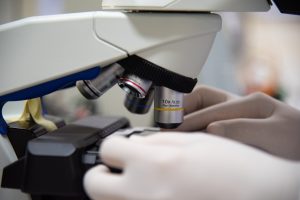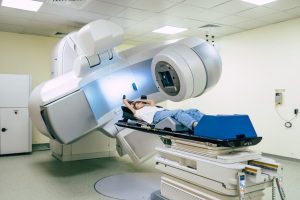
2026 Cancer Statistics
Cancer Death and Diagnosis Statistics for 2026: 2 RCCA Oncologists Provide Insights into the Numbers The latest statistics from the American Cancer Society (ACS) detail
HIPAA Alert: Potential Data Breach Learn More
Questions on Oncology, Hematology and/or Infusion Clinical Services due to COVID-19 Crisis – CALL 833-698-1623
Important Information for Our Patients Regarding the Coronavirus.
RCCA Providing Area Cancer Patients with Access to Care During Coronavirus Outbreak
RCCA Offering Patients Virtual Visits During Coronavirus Pandemic
Colorectal cancer has been declining in the U.S. since the mid-1980s. However, incidents in adults younger than age 50 are rising. Though colorectal cancer is traditionally associated with older individuals, people as young as 20 are being diagnosed with increasing frequency. This is why everybody should understand how to prevent colon cancer. By prioritizing healthy lifestyle choices as early as possible, people at any age can reduce their cancer risk.
Many individuals diagnosed with colon cancer turn to Regional Cancer Care Associates (RCCA) for treatment. RCCA is a group of more than 100 medical oncologists and hematologists who treat patients who have solid tumors, blood-based cancers and benign blood disorders at 25 locations throughout New Jersey, Connecticut, Massachusetts, and the Washington, D.C., area. They strive to educate patients while providing innovative care.
Following, we explore colon cancer and provide 5 essential tips individuals can follow to improve their colon health.

Colorectal cancer, or colon cancer, is a type of cancer that originates in the colon. Cancer is caused by uncontrolled cell growth. Under healthy conditions, cells reproduce at a consistent rate. This lets new cells continually replace the ones that die. Occasionally, however, a gene mutation alters the growth instructions. This creates abnormal cells that divide and reproduce rapidly. The fast-growing mass, called a tumor, quickly crowds out healthy cells and impedes organ function.
Also called the large intestine, the colon’s job is to remove water, nutrients, and electrolytes from digested food. Once emptied of useful materials, the food leaves the body as waste.
Most colon cancer begins in the colon’s inner lining. If this becomes inflamed due to disease or diet choices, cell DNA may become damaged. This increases the likelihood that a cancerous tumor may form.
Early-stage colorectal cancer does not always cause symptoms. For this reason, routine screenings are an important part of detection. Routine colorectal screening can identify precancerous polyps and early-stage cancer when it is easiest to treat. The American Cancer Society (ACS) recommends people at average risk start screening at age 45. The recommended frequency depends on the test used:
At-risk individuals should consider starting screening earlier. Those with a strong family history of colon cancer should be screened at age 40 or 10 years earlier than the earliest diagnosed case. Individuals with Lynch syndrome or a hereditary colon cancer syndrome may begin screening as early as age 20. Individuals should speak with their healthcare provider about the best testing frequency.
Many patients diagnosed with colorectal cancer also have diabetes or obesity, two major risk factors for colon cancer. In fact, according to a 2023 study, colon cancer incidents increase proportionately with body mass index (BMI). This is because obesity causes chronic inflammation, which may damage colon DNA cells. It also increases insulin levels. Insulin promotes cell growth, which may also increase cancer risk. For this reason, maintaining a healthy weight is essential for cancer prevention.
One important part of weight control is exercise. Regular physical activity helps prevent fat formation. It also increases antioxidant levels, which, in turn, reduces chronic inflammation and insulin resistance.
Eating a healthy diet is also valuable. Processed, sugary, and fatty foods cause weight gain, which can increase cancer risk. They also alter the healthy bacteria in the gut, potentially irritating and inflaming the colon lining. Instead of eating these foods, consider the following advice:
These dietary choices lead to a healthier body and a reduced risk of cancer.
Heavy alcohol use is another major colorectal cancer risk factor. While this applies more to men than women, both groups are affected. Alcoholic beverages contain ethanol, which can damage the colon’s inner lining if consumed. This might cause inflammation and reduce the body’s ability to absorb nutrients, increasing the risk of colorectal cancer.
To prevent cancer, people should quit alcohol or limit their intake. Current recommendations suggest a maximum of two drinks per day for men and one for women.
Smoking tobacco is harmful for many reasons. Colorectal cancer risk is only one among them. Tobacco smoke contains over 7,000 different chemicals, 250 of which are known to be harmful. At least 69 can cause cancer. These toxins, known as carcinogens, can alter DNA and cause abnormal cell development. Carcinogens are especially dangerous when combined with alcohol, which helps them more easily enter the cells lining the digestive tract.
All tobacco products, including e-cigarettes and vape pens, contain cancer-causing chemicals that pose a serious health risk to users. They come with other long-term health consequences as well, including heart disease, diabetes, stroke, lung disease, and more.
Support services exist to help people quit smoking. Centers for Disease Control (CDC) offers a phone helpline at 1-800-QUIT-NOW that provides tobacco coaching in several languages. The American Cancer Society also provides tools online and over the phone at 1-800-227-2345.
Finally, people can reduce colorectal cancer risk by participating in their own care. This involves paying attention to any changes in their bodies. If symptoms of colorectal cancer develop at any age, the person should speak with their provider and request screening. Signs to watch for include:
It is important to note that the great majority of women and men who experience one or more of the symptoms listed above will not have colon cancer. Nonetheless, it is important to consult a physician about these symptoms, particularly if they are pronounced, arose suddenly, or have persisted for an extended period. If the cause is cancer, then a prompt response is the most reliable way to improve treatment outcomes.
When people understand the causes and risk factors, they can take colon cancer prevention into their own hands. Regional Cancer Care Associates educates patients to help them avoid life-threatening cancer. RCCA specialists provide care to more than 30,000 new patients and 265,000 established patients each year. RCCA physicians offer patients innovative therapies, including immunotherapies and targeted therapy, cutting-edge diagnostics as well as access to approximately 300 clinical trials in community-based centers close to home.
What are colon cancer risk factors?
Risk factors for colon cancer include:
Why is colon cancer screening important?
Routine screenings increase the likelihood that colon cancer is detected before symptoms form. This allows treatment to begin in earlier stages, leading to a better prognosis and outcome.
How can I prevent colon cancer?
People can reduce their cancer risk by eating a healthy diet, exercising frequently, controlling their weight, and avoiding alcohol and tobacco. They should also receive routine screening and pursue testing if any symptoms develop.
For more information or to schedule an appointment,
call 844-346-7222. You can also schedule an appointment by calling the RCCA location nearest you.

Cancer Death and Diagnosis Statistics for 2026: 2 RCCA Oncologists Provide Insights into the Numbers The latest statistics from the American Cancer Society (ACS) detail

If you’ve been diagnosed with breast cancer, you may have heard radiation therapy discussed as part of your treatment plan. This approach is commonly used

Cancer and its treatment often impact a person’s quality of life. In the case of prostate cancer, a man’s sex life may be affected. Sexual

Regional Cancer Care Associates is one of fewer than 200 medical practices in the country selected to participate in the Oncology Care Model (OCM); a recent Medicare initiative aimed at improving care coordination and access to and quality of care for Medicare beneficiaries undergoing chemotherapy treatment.